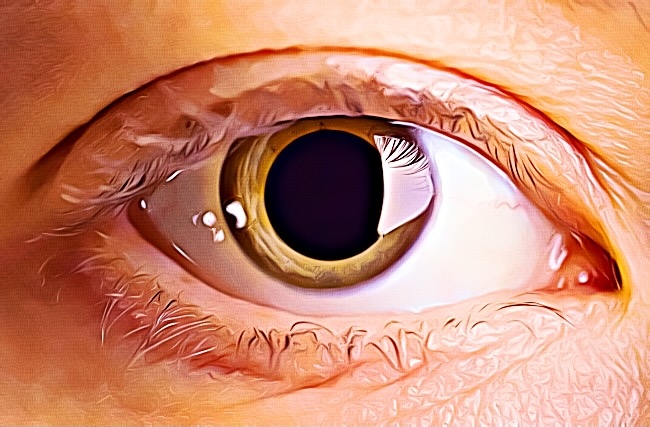Gabapentin is a medication used to treat various nerve pain and seizures. It is also sometimes used to treat anxiety. Gabapentin is an anti-epileptic medication, also called an anticonvulsant. It works by stabilizing electrical activity in the brain.
Originally, gabapentin was approved by the FDA in 1993 to treat seizures. It is also approved to treat nerve pain associated with shingles (postherpetic neuralgia). Gabapentin is available as a generic drug.
In today’s article, let’s explore what you need to know about gabapentin. Read on to learn more!
Can You Overdose on Gabapentin?
Gabapentin is a medication typically used to treat epilepsy or nerve pain. It is an anticonvulsant medication that works by affecting the way that nerves send signals in the brain. Gabapentin is also sometimes used to treat anxiety or insomnia.
It is possible to overdose on gabapentin, although it is not typically fatal. An overdose of gabapentin can cause seizures, drowsiness, and vomiting. If you think you or someone you know has overdosed on gabapentin, it is important to seek medical help immediately.
What are the Signs And Symptoms of Overdose?
An overdose occurs when a person takes more substance than their body can safely process. Overdoses can be accidental or intentional. They can be life-threatening and require immediate medical attention.
There are many signs and symptoms of an overdose, and they vary depending on the substance involved. Some common signs and symptoms include:
- Excessive drowsiness or sleepiness
- Confusion or disorientation
- Slurred speech
- Difficulty walking or standing
- Slow or shallow breathing
- Dilated pupils
- Loss of consciousness
The Benefits of Taking Gabapentin
Gabapentin is a medication commonly used to treat various nerve pain and seizures. It is also used off-label for a variety of other conditions. Some of the potential benefits of gabapentin include the following:
1. Relief from nerve pain: Gabapentin is commonly used to treat various types of nerve pain, such as postherpetic neuralgia and diabetic neuropathy. It is thought to work by reducing the number of pain signals sent to the brain.
2. Seizure control: Gabapentin is approved for the treatment of seizures. It is thought to work by reducing the activity of neurons in the brain.
3. Migraine prevention: Gabapentin is sometimes used to prevent migraines. It is thought to work by reducing the activity of neurons in the brain.
4. Hot flash relief: Gabapentin is sometimes used to treat hot flashes. It is thought to work by reducing the activity of neurons in the brain.
5. Restless leg syndrome relief: Gabapentin is sometimes used to treat restless leg syndrome. It is thought to work by reducing the activity of neurons in the brain.
Gabapentin is a medication that has a variety of potential benefits. If you are experiencing any of the conditions listed above, talk to your doctor to see if gabapentin could be right for you.
What to Know Before Taking Gabapentin
For the most part, gabapentin is a medication used to treat seizures. It can also relieve nerve pain and is sometimes used as a treatment for hot flashes. Gabapentin is available as a generic drug and is also sold under the brand names Neurontin and Gralise.
Before taking gabapentin, it is important to know that the medication can cause drowsiness and dizziness. You should not drink alcohol or take other medications that can make you drowsy while taking gabapentin. Gabapentin can also cause blurred vision, so it is important to be careful when driving or operating machinery.
It is also important to know that gabapentin can interact with other medications. Be sure to tell your doctor about all your medications, including over-the-counter drugs, vitamins, and herbal supplements.
If you are pregnant, it is essential to know that gabapentin can pass into breast milk. You should talk to your doctor about the risks of taking gabapentin if you are pregnant or breastfeeding.
Gabapentin is a safe and effective medication when used as directed. Be sure to talk to your doctor about any concerns you may have about taking gabapentin.
What to Avoid When Taking Gabapentin
When taking gabapentin, there are a few things you should avoid in order to prevent any potential problems.
First, avoid drinking alcohol while taking gabapentin. Alcohol can increase the side effects of gabapentin, such as drowsiness and dizziness. If you must drink alcohol, do so in moderation and ensure you are not taking any other medication that could interact with gabapentin.
Second, avoid driving or operating heavy machinery until you know how gabapentin affects you. As mentioned, gabapentin can cause drowsiness and dizziness, so it is best to avoid any activities that require mental alertness or physical coordination until you know how your body reacts to the medication.
Third, avoid taking gabapentin with other medications that can cause drowsiness, such as other anti-seizure medications, sedatives, muscle relaxants, sleeping pills, cold or allergy medications, and narcotic pain relievers. Taking gabapentin with any of these medications can increase the risk of drowsiness and dizziness.
Fourth, avoid abrupt discontinuation of gabapentin. If you need to stop taking gabapentin, do so gradually over a period of a few days to avoid potential withdrawal symptoms such as headache, nausea, and vomiting.
Lastly, avoid taking gabapentin if you have kidney disease. Gabapentin is removed from the body by the kidneys, so those with kidney disease may need a lower dose or may not be able to take the medication at all.
What are the Effects of Gabapentin?
Aside from treating various types of nerve pain and seizures, gabapentin can also treat anxiety. While gabapentin is generally considered to be safe, there are a few potential side effects that you should be aware of.
The most common side effects of gabapentin include dizziness, drowsiness, and fatigue. These side effects are typically mild and tend to go away on their own.
In rare cases, gabapentin can cause more serious side effects. These include problems with balance, coordination, and vision. Gabapentin can also cause mood changes, including depression and anxiety.

What are the Risks of Taking Gabapentin?
As mentioned above, gabapentin is not without its side effects. Thankfully, these side effects are usually mild and go away on their own. However, gabapentin can also cause more serious side effects, including:
- Changes in mood or behavior
- Depression
- Suicidal thoughts or actions
- Hallucinations
- Memory problems
- Trouble walking or coordination problems
- Unusual eye movements
Gabapentin can also interact with other medications, so it is important to tell your doctor about all your medications, including over-the-counter medications, vitamins, and herbal supplements. If you stop taking it suddenly, gabapentin can also cause withdrawal symptoms. These withdrawal symptoms can include:
- Anxiety
- Insomnia
- Nausea
- Pain
- Sweating
Before you stop taking gabapentin, you must talk to your doctor first to help you taper off the medication gradually to avoid withdrawal symptoms.
Overall, gabapentin is a safe medication with a low risk of serious side effects. However, as with any medication, some risks are associated with gabapentin.
Other Conditions That Gabapentin Can Treat
Gabapentin is an effective medication for many conditions, including epilepsy, restless legs syndrome, hot flashes, and nerve pain. It can also be used to treat other conditions, such as:
- Migraines: Gabapentin can help to reduce the frequency and severity of migraines.
- Depression: Gabapentin can be used as an adjunct treatment for depression.
- Anxiety: Gabapentin can help to reduce anxiety.
- Insomnia: Gabapentin can help to improve sleep quality.
- PTSD: Gabapentin can help to reduce the symptoms of post-traumatic stress disorder.
If you are considering gabapentin for any of these conditions, talk to your doctor to see if it is the right medication.
The Bottom Line
Gabapentin treats various forms of nerve pain. It is also sometimes used to treat seizures. For most people, it is generally well-tolerated, but it can cause some side effects, such as drowsiness, dizziness, and nausea. However, as long as you research and familiarize yourself, it should be fine. Make sure to consult your doctor and report any side effects.

